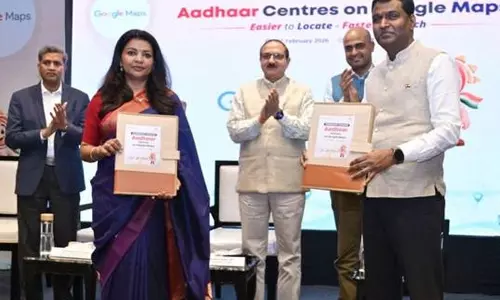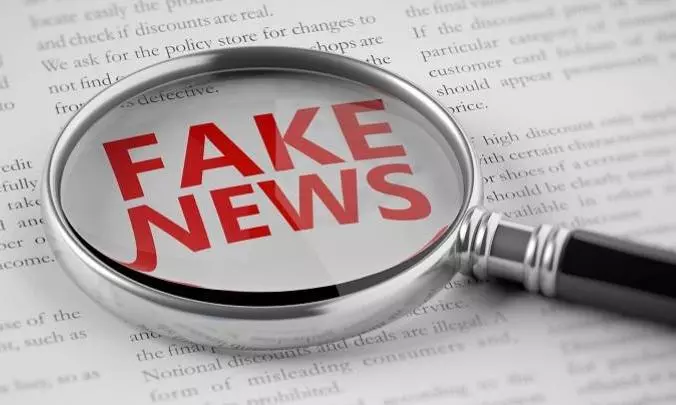
Centre to empower entity to fact-check, remove online content; critics call it censorship
text_fieldsNew Delhi: The Central government has brought out a new rule by amending the 2021 IT Rules whereby an entity formed by the government can decide whether news articles, videos and information that are being shared on social media are fake or not.
It will become obligatory upon social media platforms not to share or host fake, false or misleading information, which has been flagged by the government entity in respect of any business of the Union government.
The Union Ministry of Electronics and IT (MeITy) has issued a statement saying that it has made amendments to the IT Rules after consulting with multiple stakeholders, with the aim of setting up a panel.
“These amendments have been drafted after holding widespread consultations with multiple stakeholders including parents, school teachers, academics, students, gamers and gaming industry associations, child rights bodies, etc,” MeITy said in a statement.
According to the Press Trust of India (PTI), Union Minister of State for Electronics and IT, Rajeev Chandrasekhar, has announced that the government will notify an entity through MeITy to serve as a fact-checker for all online content, including the ones related to the government.
Reacting to the new amendments that gives the government the authority to flag whatever information that is critical of the establishment as fake, the Internet Freedom Foundation (IFF) said that it would directly impact the individual’s right to receive information and online freedom of speech.
The amendments are being criticized for violating a Supreme Court ruling that established rigorous procedures for content blocking. Moreover, the amendments have been accused of circumventing the parliamentary procedures needed to broaden the scope of the parent legislation, the IT Act.
“In an event where intermediaries, including social media intermediaries (Facebook, Twitter etc.), Internet Service Providers (ISPs like Airtel, ACT, Jio etc.) or other service providers, fail to/ decide against taking action on content identified as ‘fake’ or ‘false’ by the notified fact-check unit, they will risk losing their safe harbour protections,” IFF statement said.
“Assigning any unit of the government such arbitrary, overbroad powers to determine the authenticity of online content bypasses the principles of natural justice, thus making it an unconstitutional exercise. The notification of these amended rules cement the chilling effect on the fundamental right to speech and expression, particularly on news publishers, journalists, activists, etc,” it added.
The Editors Guild of India has also issued a statement expressing its concern that the amendments to the IT Rules will have severe implications for press freedom in the country.
In a statement, the Guild said that the government has granted itself absolute power to determine the veracity of information related to its own work and to order its takedown.
“The creation of a "fact-checking unit" through a simple notification published in the Official Gazette is a violation of the principles of natural justice and tantamount to censorship. The Guild regrets the Ministry's notification of these draconian rules and urges it to withdraw the notification and engage in consultations with media organizations and press bodies.,” read its statement.
The recent amendment to the Information Technology (Intermediary Guidelines and Digital Media Ethics Code) Rules, 2021, focuses on the spread of information that goes against the government on social media or online gaming platforms. In accordance with Section 2(1)(w) of the IT Act, 2000, an intermediary is defined as any person or entity that receives, stores, transmits, or provides any service related to digital records.
This includes telecom service providers, network service providers, internet service providers, web-hosting service providers, search engines, online payment sites, online-auction sites, online marketplaces, and cyber cafes.
The new amendments make it mandatory for intermediaries to take "reasonable efforts" to avoid hosting, publishing, or sharing any online games that may harm the user or have not been verified as permissible by an online gaming self-regulatory body designated by the Union government.






















